Medication commonly plays an important role in the effective treatment of alcoholism (one of the two overlapping conditions that constitute alcohol use disorder). Some of the medication options in use were specifically designed to help people affected by problematic alcohol use, while others were originally designed for the treatment of non-alcohol-related health concerns.
In a study published in April 2014 in The American Journal of Drug and Alcohol Abuse, researchers from the Boston University School of Medicine explored the potential usefulness of an anti-seizure medication called ezogabine or retigabine as a treatment for people diagnosed with alcoholism.
Medications For Alcoholism Treatment
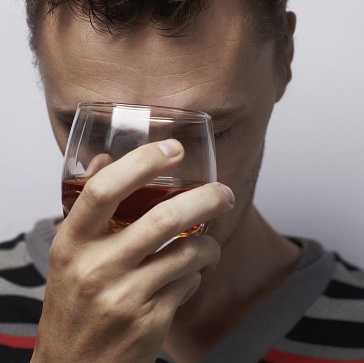 Doctors have four main medication options for helping people affected by alcoholism. Two of these options, disulfiram (Antabuse) and acamprosate (Campral), were developed primarily for alcohol-related treatment. Pharmaceutical researchers initially developed the third option, naltrexone (ReVia, Vivitrol), as a treatment for people diagnosed with opioid addiction. The fourth option, topiramate (Topamax), was originally intended to help individuals affected by certain types of seizure disorders.
Doctors have four main medication options for helping people affected by alcoholism. Two of these options, disulfiram (Antabuse) and acamprosate (Campral), were developed primarily for alcohol-related treatment. Pharmaceutical researchers initially developed the third option, naltrexone (ReVia, Vivitrol), as a treatment for people diagnosed with opioid addiction. The fourth option, topiramate (Topamax), was originally intended to help individuals affected by certain types of seizure disorders.
The U.S. Food and Drug Administration has officially approved disulfiram, acamprosate and naltrexone as alcoholism treatments. The FDA has not approved topiramate for alcoholism treatment; however, doctors can still prescribe this medication as an unofficial or “off-label” option.
Unique Results
Each of the current medication options for alcoholism produces results in its own distinct way. For example, disulfiram deters drinking by slowing down the body’s ability to process alcohol and sharply exaggerating the unpleasant symptoms associated with excessive alcohol consumption. Acamprosate helps ease some of the worst symptoms of alcohol withdrawal by making certain changes in the brain’s chemical balance.
Naltrexone helps block the nerve receptors that normally give opioid narcotic substances access to the brain; for reasons that are not entirely clear, this action also interferes with the pleasure derived from alcohol consumption and reduces the strength of cravings for more alcohol intake. Topiramate helps reduce any overactivity in the brain’s nerve cells; although no one really knows why, this reduction also diminishes the strength of alcohol cravings and helps lower the risks for participation in excessive drinking.
Outside of the U.S., ezogabine is also commonly known as retigabine. Its brand name within the U.S. is Protiga. Like topiramate, ezogabine belongs to a group of medications called anti-seizure medications or anticonvulsants. Doctors typically use the medication as part of a larger course of treatment for adults affected by seizures called partial onset seizures, which remain localized in one part of the brain rather than branching out and producing more widespread effects. Ezogabine comes in tablet form.
Ezogabine In Alcoholism Treatment
In the study published in The American Journal of Drug and Alcohol Abuse, the researchers from the Boston University School of Medicine used laboratory experiments on rats to investigate the usefulness of ezogabine (retigabine) as a treatment for alcoholism. These researchers had previously explored the potential usefulness of other types of anti-seizure medications and chose to focus on ezogabine because the medication works in a fairly unique way inside the brain.
During the study, the researchers gave ezogabine to two groups of rats for three days. One of these groups had access to a 10 percent solution of pure drinking alcohol, while the other group had access to a 5 percent alcohol solution. A comparison group of rats received a placebo instead of ezogabine. After comparing the outcomes in the three groups, the researchers concluded that the rats given ezogabine significantly reduced their alcohol intake over the course of the study.
The authors note that the therapeutic dose of ezogabine given to the rats in the project was quite close to the dose capable of producing an unwanted loss of muscle control. This means that, in human beings, the amount of the medication needed to help recovering alcoholics curb their drinking may not differ much from the amount capable of causing harm. Citing this finding, the study’s authors call for more research to investigate the specific effects that ezogabine has inside the central nervous system (brain and spinal cord). In addition, they feel that their ezogabine-related work can play an important role in the search for other medications that work in a similar way and may ultimately provide unique benefits in alcoholism treatment.
Call Us Now For Alcohol Abuse Help! We Are Here For You 24/7!
Addiction specialists and other health professionals have a range of medication-based options for helping people affected by alcoholism. However, even when they receive one of these medications, some recovering alcoholics still lapse back into heavy alcohol consumption. In a study published in April 2014 in the journal Alcoholism: Clinical & Experimental Research, researchers from three German institutions assessed the effectiveness of individualized psychotherapy in recovering alcoholics who don’t respond sufficiently to medication-based treatment. Specifically, the researchers examined the usefulness of a form of individualized therapy called cognitive behavioral therapy.
What Medications Can Help Alcoholics?
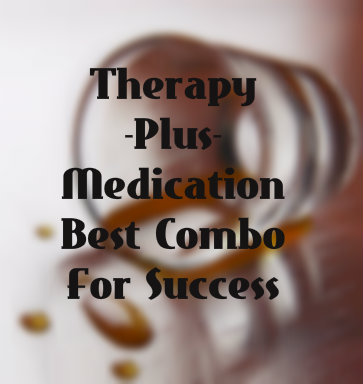 As of 2014, the U.S. Food and Drug Administration has approved a trio of medications for use in people recovering from alcoholism: naltrexone (Vivitrol), disulfiram (Antabuse) and acamprosate (Campral). Naltrexone is an anti-opioid medication that also blocks the chemical reactions responsible for triggering pleasurable sensations and alcohol cravings in drinkers. Disulfiram deters alcohol consumption by exaggerating the unpleasant chemical reactions associated with the breakdown of alcohol inside the body. Acamprosate makes chemical changes inside the brain that typically lessen the intensity of the alcohol withdrawal symptoms that commonly contribute to relapse risks in recovering alcoholics. Doctors also sometimes use a fourth medication, called topiramate (Topamax), not initially intended for use in alcoholism treatment. This anti-seizure compound also makes changes in the brain’s chemical environment that can help lower the odds that recovering alcoholics will take a drink.
As of 2014, the U.S. Food and Drug Administration has approved a trio of medications for use in people recovering from alcoholism: naltrexone (Vivitrol), disulfiram (Antabuse) and acamprosate (Campral). Naltrexone is an anti-opioid medication that also blocks the chemical reactions responsible for triggering pleasurable sensations and alcohol cravings in drinkers. Disulfiram deters alcohol consumption by exaggerating the unpleasant chemical reactions associated with the breakdown of alcohol inside the body. Acamprosate makes chemical changes inside the brain that typically lessen the intensity of the alcohol withdrawal symptoms that commonly contribute to relapse risks in recovering alcoholics. Doctors also sometimes use a fourth medication, called topiramate (Topamax), not initially intended for use in alcoholism treatment. This anti-seizure compound also makes changes in the brain’s chemical environment that can help lower the odds that recovering alcoholics will take a drink.
Cognitive Behavioral Therapy
Practitioners of cognitive behavioral therapy (CBT) help their patients/clients identify the underlying feelings, perceptions and actions that contribute to dysfunctional behavior in stressful situations. After making this identification, the individual can gradually learn a new set of feelings, perceptions and actions that don’t help trigger destructive behaviors. In the context of addiction treatment, CBT practitioners specifically help their patients/clients learn to do such things as anticipate the situations likely to increase the urge to use drugs or alcohol, learn how to cope with those situations without using drugs or alcohol, identify substance-using urges as soon as possible and accurately weigh the pros and cons of using drugs or alcohol.
Cognitive behavioral therapy is suitable for use in both individualized and group formats. In addition, the therapy can be used on its own or in combination with medication-based addiction treatment. In addition to alcoholism, forms of addiction addressed by CBT include addiction to the stimulants methamphetamine and cocaine, marijuana addiction and addiction to the nicotine contained in cigarettes and other tobacco products.
Usefulness In People Not Helped By Medication
In the study published in Alcoholism: Clinical & Experimental Research, researchers from Germany’s Freiberg University, Tubingen University and Heidelberg University used an examination of 109 individuals to assess the effectiveness of an individualized cognitive behavioral approach in helping recovering alcoholics who don’t receive enough benefit from medication-based treatment. All of these individuals were alcohol program participants who had experienced severe relapses back into drinking after taking an alcoholism medication, or after receiving a placebo that mimicked the appearance of an alcoholism medication. During the study, half of the participants continued to receive a standard combination of medication and medical symptom management. The other half received a combination of medication, medical symptom management and cognitive behavioral therapy conducted on an individualized basis.
The researchers analyzed the effectiveness of individualized CBT in all of the participants originally assigned to the therapy group, as well as the effectiveness of the approach in all of the participants who actively engaged in therapy. After completing these analyses, they concluded that the recovering alcoholics who actively engaged in the CBT process received a substantial benefit from the therapy and experienced improved treatment outcomes when compared to the recovering alcoholics who received only medication and medical symptom management.
The chief measurement used to compare the effectiveness of the combination of medication and individualized cognitive behavioral therapy to the effectiveness of medication without CBT was the number of days recovering alcoholics could successfully avoid experiencing another severe relapse. The authors of the study published in Alcoholism: Clinical & Experimental Research concluded that those program participants who actively embrace the goals of individualized CBT can potentially increase the number of days between relapses if they combine the therapy with an alcoholism medication. In line with this conclusion, they believe that alcohol programs may see significant improvements in their patients’/clients’ relapse-related outcomes if they offer access to non-medication-based therapy early in the treatment process.
Read How Do Recovering Alcoholics Respond To Baclofen?
11 Apr 2014
How To Forgive Your Alcoholic Parent
Forgiveness, as the experts say, is a choice. If someone has wronged you, you cannot wait for forgiveness to appear. You must make a conscious decision to forgive. You also cannot wait for the person who wronged you to apologize. It may never happen. Forgiving someone is a personal choice and one that can give you many benefits. Researchers know that by actively forgiving, you can expect to experience less stress, better relationships, less depression, and even lower blood pressure and a lowered risk of substance abuse.
If the forgiveness you are considering means letting go of the harm and neglect you faced as a child because of a parent’s alcoholism, it will not be easy. Whether your alcoholic parent physically abused you, or simply was never there for you emotionally, you suffered greatly as a result. Forgiveness may be something you have considered, but are struggling to get through. With some understanding, compassion, and a suspension of resentment, you can forgive and move on with your life.
 The Harm Caused By An Alcoholic Parent
The Harm Caused By An Alcoholic Parent
The reason forgiving your mother or father is so difficult is that they caused so much damage in your life. When the children of alcoholics become adults they often experience their own struggles with substance abuse. You are also vulnerable to depression, you may have low self-esteem, and you probably struggle to maintain healthy relationships. If you were physically abused by your alcoholic parent, the repercussions may be more extreme.
Can You Learn To Understand An Alcoholic?
If you have managed to avoid having a substance abuse problem yourself, you may have a hard time understanding your alcoholic parent. However, your path to forgiveness may begin with compassion and understanding. Read up on the disease of alcoholism and try to learn why certain people are vulnerable to it and the impact it has. You may even want to talk to your mother or father about it. If he or she is willing to open up, you can learn just what the struggle has been like. Maybe your parent experienced abuse as a child. If you can understand the motivation behind your parent’s drinking, you may find the compassion to forgive.
Can You Let Go Of Resentments?
One of the biggest roadblocks to forgiveness is resentment. This ugly specter lives with you day in and day out. The more you think about how your alcoholic parent impacted your life in a negative way, the bigger this resentment becomes. It is a toxic feeling and will hinder you in everything you do. Even if you cannot yet forgive your parent, learn to let go of the resentment so that you can better function.
Remember The Good Times
Few alcoholic parents are so terrible that they never cared for their children at all. As you try to let go of resentment and attempt to cultivate compassion, think back to your childhood and try to remember the happy moments. Make a list of all the memories of a happy and caring parent. Remembering these moments and the feelings that accompanied them will help you to journey closer toward forgiveness.
Forgiveness is a choice, and it is a healthy one. Your life will only get better when you are able to forgive your parent. You will be able to rebuild a relationship and you will be able to let go of resentment. You will feel as if a weight has been lifted from your shoulders.
Find Out How Recovering Alcoholics Respond To Baclofen
Baclofen is the name of a medication originally developed to treat people affected by severe muscle spasms. Increasingly, doctors also use this medication as an off-label treatment for alcohol cravings in people going through treatment for alcoholism. In a study published in February 2014 in the journal Alcoholism: Clinical & Experimental Research, a team of French researchers assessed the dose of baclofen required to provide effective treatment for alcoholics. These researchers concluded that the effective dose of the medication can vary widely for no clear underlying reason.
How Baclofen Works And What It’s Used For
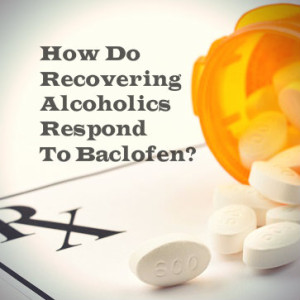 Baclofen produces a muscle-relaxing effect by altering the rate of nerve cell communication inside the spinal cord, which forms part of the central nervous system. This effect does not cure the underlying causes of severe muscle spasms; however, it does reduce the intensity of those spasms and forms part of a larger overall treatment regimen.
Baclofen produces a muscle-relaxing effect by altering the rate of nerve cell communication inside the spinal cord, which forms part of the central nervous system. This effect does not cure the underlying causes of severe muscle spasms; however, it does reduce the intensity of those spasms and forms part of a larger overall treatment regimen.
The most well-known condition treated with baclofen is multiple sclerosis, which damages the protective coatings of the spinal nerves and nerves inside the brain. Some people also receive the medication for certain forms of spinal disease or in the aftermath of traumatic injuries that have an impact on spinal cord function. Baclofen is available in tablet form in the U.S. under the brand names Kemstro and Lioresal.
Baclofen’s Use In Alcoholism Treatment
Once a medication receives FDA approval for treatment of one condition, doctors sometimes adopt that medication as a treatment for other conditions. This type of use is commonly known as off-label use. In the early 2000s, doctors began using baclofen as an off-label treatment for alcoholism (a condition which forms part of a larger health diagnosis called alcohol use disorder). The medication achieves its positive effects in this role by helping to ease constant or recurring cravings for alcohol intake.
As a rule, these cravings play a critical role in establishing and reinforcing alcohol dependence, which is the underlying alteration in brain chemistry responsible for the onset of alcoholism. In a study published in 2012 in the journal Frontiers in Psychiatry, a team of French and Italian researchers investigated the effectiveness of baclofen in reducing alcohol cravings. These researchers found that the medication is highly effective in this role, and therefore can make significant contributions toward breaking the cycle of alcohol use in people going through the alcoholism recovery process.
Varying Dosages Of Baclofen
Effective doses of baclofen can vary widely between individuals going through alcoholism treatment. The low end of the typical dosage range is 30 mg per day; people at the high end of the range can require as much as 240 mg per day. In the study published in Alcoholism: Clinical & Experimental Research, researchers from two French institutions tried to find out which factors help determine whether a given person will need a low daily dose of baclofen or a high daily dose. They conducted their work with information gathered from 37 adults (ranging in age from 31 to 68) going through alcoholism treatment. Specific factors looked at as potential influences on the required dose of baclofen included level of involvement in smoking, blood levels of 10 naturally occurring substances that can indicate changes in normal body function and basic demographic attributes such as gender, height, age and weight.
After completing their work, the researchers concluded that the differences in the daily required doses of baclofen stem from the widely varying rates at which the human body can absorb and distribute the medication. Simply put, some people experience relatively rapid absorption and distribution, while others experience relatively slow absorption and distribution. Critically, after examining all of the potential factors that could influence the body’s use of baclofen, the researchers could not find anything that would explain the different rates of use that appear in people going through alcoholism treatment.
Unique Differences In Absorption Of Baclofen And High Dose Side Effects
The authors of the study published in Alcoholism: Clinical & Experimental Research believe that individual differences in the absorption and distribution of baclofen may help explain why some people either require large doses of the medication to receive a benefit or don’t benefit from the medication at any reasonable dosage. This is extremely important information, since the use of high doses of baclofen can potentially produce severe forms of side effects such as lightheadedness, sleepiness, muscle weakness, mental disorientation, convulsions or disrupted breathing. Further research will be needed to determine exactly what accounts for the wide variations in baclofen’s relative effectiveness.
Read More About How Alcoholics Refuse To Get Treatment Due To Stigma
Social support is the general term for the connections we develop and maintain between family members, friends and other loved ones or more distant acquaintances. Generally speaking, people with highly developed forms of these connections have an increased ability to withstand daily and traumatic stresses and cultivate a sense of mental/emotional well-being. In a study published in February 2014 in the journal Alcoholism: Clinical & Experimental Research, researchers from Purdue University explored the impact good social support has on the genetic and environmental risks for developing a diagnosable case of alcohol abuse or alcoholism.
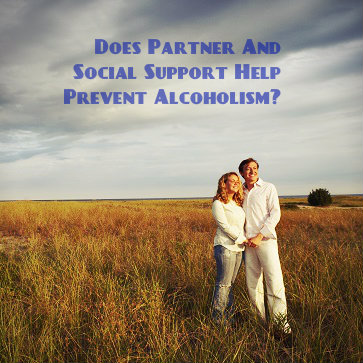 Benefits Of Social Support Networks
Benefits Of Social Support Networks
Social support networks can involve many people or just a few. In addition, they can form in informal settings such as friendships, blood relationships or intimate partnerships, or in more formal settings such as clubs, churches, associations or other organizations. Forms of support that can come from belonging to a given network include emotional support, physical or material support and the support provided by sharing various types of valuable or relevant information. In addition to improved stress resistance, current evidence indicates that people who can consistently rely on their social support networks experience benefits that include reduced risks for chronic illness, higher rates of survival when chronic illnesses strike and increased access to important resources and opportunities.
Genetic And Environmental Risks For Developing Alcohol Use Disorder
People who consistently misuse alcohol significantly boost their chances of developing alcohol use disorder (the modern-day term used to describe the symptoms of both alcohol abuse and alcoholism). Any given person’s overall odds for experiencing this disorder stem from both genetic and environmental factors. Broadly speaking, genetic factors come from inherited changes or alterations passed on through a person’s DNA, while environmental factors include all influences that first arise after a person is born.
The National Institute on Alcohol Abuse and Alcoholism reports that about half of all known risks for alcoholism are genetic in nature. Instead of acting in simple, entirely predictable ways, the inherited chances of developing alcoholism interact in any given individual and produce unique hereditary risk profiles. Similarly, environmental factors have a complex, overlapping impact on alcoholism risks rather than acting in completely predictable patterns. Despite the level of uncertainty involved, researchers and doctors can typically look at a person’s combined genetic and environmental risk factors and roughly determine his or her chances of developing diagnosable alcohol-related problems.
Impact Of Social Support On Risks For Developing Alcohol-Related Issues
In the study published in Alcoholism: Clinical and Experimental Research, the Purdue University researchers used an examination of 672 sets of adult twins to determine the impact of social support on both the genetic and environmental risks for developing alcohol-related issues. They conducted this project because very little research had been done on the alcohol-related effects of social support, in particular. Specific forms of social support under consideration included family-based support, friend-based support and the support provided by an intimate partner. The researchers used a sophisticated form of analysis to separate the effects of genetic influences from the effects of environmental influences in each study participant.
Intimate Partner Support And Impact On Alcohol Abuse
After reviewing their findings, the researchers concluded that, in any given individual, the mixture of genetic and environmental factors for alcohol-related problems varies according to how much social support that person gets from an intimate partner. Specifically, people with low levels of intimate partner support are affected by environmental factors more often than genetic factors, while people with high levels of intimate partner support are affected by genetic factors more often than environmental factors. The researchers also concluded that the presence of strong social support from a friend or family member does not have any substantial effect on the genetic and environmental risks for alcohol abuse or alcoholism.
Determining If Someone Will Be Susceptible To The Environmental Factors That Contribute Alcohol Problems
The authors of the study published in Alcoholism: Clinical & Experimental Research believe they have identified a potentially critical aspect of the underlying equation that helps determine if a person will be susceptible to the environmental factors known to contribute to the development of diagnosable problems with alcohol consumption. Specifically, they note the importance of knowing which types of social support reduce environmental risks. In the future, doctors may be able to use measures of social support to increase their ability to predict the eventual onset of alcohol use disorder in their patients.
Read More About 12 Step Programs – A Guide For Families Of Addicts
04 Feb 2014
How Is Your Drinking Impacting Your Kids?
You don’t have to be an alcoholic for your drinking to have a negative impact on your children. When you drink too much, there are numerous ways in which your children are affected. You are shaping their attitudes toward alcohol and drinking, but you also may become a different person when you drink. Your shifting moods, your time devoted to drinking, your use of alcohol to temper your emotions; all of these impact your children.
Does My Drinking Determine If My Child Will Drink?
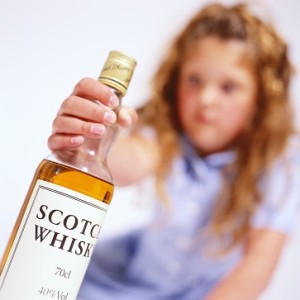 Everything you do and say helps to shape your child’s outlook on life and how he relates to the world. What you do—your actions—are far more impactful than what you say. If you lecture your children on the importance of drinking in moderation and then regularly go off the deep end with your own drinking, the latter is what they really notice.
Everything you do and say helps to shape your child’s outlook on life and how he relates to the world. What you do—your actions—are far more impactful than what you say. If you lecture your children on the importance of drinking in moderation and then regularly go off the deep end with your own drinking, the latter is what they really notice.
According to research, the best way to positively impact your children’s future drinking habits is to limit their exposure to alcohol. When you demonstrate that drinking excessively is fun and normal, your children will most likely adopt the same attitude.
Does My Drinking Affect My Children Emotionally?
Your drinking can have a strong impact on the emotional states of your children. A wide range of feelings are stirred up in your children when you have had too much to drink: embarrassment, sadness, anger and perhaps worst of all, helplessness. When you drink too much, you get out of control, whether you are a happy or a hostile drunk. Your children will notice this and feel helpless to do anything about your inevitable mood shift.
Your drinking may also cause your children to feel stressed and worried. They might be concerned that you will drive drunk, that you’ll get hurt or even that you will hurt them when your mood turns sour. They may worry and become stressed when they see you begin to drink, wondering if you will have too much this time and hoping that you will remain in control and limit yourself better. The way your drinking makes your children feel can leak into all aspects of their lives. They may end up feeling depressed or anxious at school, embarrassed to have their friends over to the house or always afraid of you when you have a drink in your hand.
How Can I Limit The Harm My Drinking Causes?
Out of control and excessive drinking are what impact children so negatively. You need not be an alcoholic to have these effects on your children, but you also do not need to abstain entirely from drinking to ensure they are safe and happy. To limit the harm your drinking causes, limit your drinking. Demonstrate to your children a healthy relationship with alcohol. Don’t drink so much that you lose control or to get tipsy. Limit the number of nights that you have a drink. When you drink reasonably, you model a good attitude toward alcohol.
Another important aspect of normal drinking is to avoid turning to alcohol to cope with stress or other emotions. Emotional drinking is a slippery slope that can lead to problem drinking. Instead, model for your children healthy ways to cope with stress. Use exercise, relaxation techniques, and hobbies to cope with negative emotions.
If you do mess up and drink too much in front of your kids, or end up with a hangover, sit your kids down to talk about it. Open discussions about alcohol will help your kids. They will feel like they can talk to you and open up about what concerns them. Your actions will always have an impact on your children; whether that impact is positive or negative is up to you.
Find Out If Alcohol Is Ruining Your Life With These Simple Questions
Being an alcoholic means having a serious disease. Alcoholism refers to a physical dependence on alcohol. If you are an alcoholic, you experience alcohol withdrawal symptoms until you get a drink in you, you experience intense cravings for alcohol and you have developed a tolerance so that you need to drink more and more to feel the effects.
If you can’t say that all of these apply to you, yet you’ve wondered if you drink too much, you may not be an alcoholic, but you might still have a problem with drinking.
You don’t have to be a full-blown alcoholic for drinking to do its damage. Ask yourself these questions to find out if you should consider cutting back on alcohol.
Do You Drink To Feel Better?
Emotional drinking is a major warning sign. Occasionally unwinding at the end of the day with a cocktail and a group of friends is nothing to worry about, but if you need a drink to de-stress, you could have a problem. Maybe you look forward to happy hour every day because it makes you feel better and helps you relax. You should not be depending on alcohol to get you to that state of mind.
Is Your Drinking Causing Relationship Problems?
Drinking can be a major cause of stress in a relationship. Your drinking may be causing you to have more fights, it may be causing you to neglect your relationship by spending too much time out drinking, or it could be making you pass out at night and getting in the way of intimacy. Your spouse or partner might be trying to hint to you that you drink too much, or he may be telling you outright. If you get defensive immediately and refuse to change your habits, you are putting strain on your relationship.
Are You Neglecting Responsibilities Because Of Drinking?
Drinking too much may lead to some rough mornings. If this means that you are not able to get up and get your kids ready for school, or get to work on time, your drinking is interfering with responsibilities. Do you drink too much and find you can’t drive to take your kids to activities or find that you just can’t get your chores done? This is a problem and drinking is impacting your life.
Do You Drink Alone?
Drinking alone is rarely a good habit to have. If you have a drink alone every once in a while, you probably don’t need to worry, but if it is a regular occurrence, you need to rethink your drinking. You should be especially concerned if you drink alone and end up getting drunk or passing out.
Do You Feel Like You Should Curb Your Drinking But Can’t?
Maybe you have already given serious thought to your drinking. Maybe you decided that you should cut back a little so that you don’t feel so bad in the mornings or so that you have more time for your kids or spouse. Did you try to cut back and find you couldn’t do it? This is a serious sign of alcohol abuse. If you can no longer control when and how much you drink, you are headed down a dangerous path.
What To Do If You Answered “Yes” To Any Of These Drinking-Problem Questions
Any one of the signs is cause for concern. If you can answer yes to any of them, drinking is taking a toll on your life and it is time to rethink drinking. Start by talking with your partner or a close friend you trust. Having support can help you to change your habits. If that fails, consider getting professional help to make some important changes.
Read More To Find Out If Your Mom Or Wife Is Drinking Too Much
You probably have a picture in your mind when you hear the word alcoholic: an older man—ragged clothing, penniless, maybe homeless. We all have our prejudices about addicts, drug abusers, and people who drink too much. The truth is, however, that someone who drinks too much could be just about anyone.
Sometimes that person who is headed down the path to alcoholism doesn’t appear at first glance to have a problem. It might be someone who is well off and has a great job. It could be a young woman. It could be a mom or a wife. Alcoholism is not restricted to the stereotype, and more women are drinking now than ever before.
If you suspect at all that your mom or the mother of your children is drinking more than is normal, or if you suspect it in yourself, take note. Know the signs of early drinking problems as well as the effects of alcoholism in women and step in to help, or get help, before it goes too far.
Has Drinking Become A Secret Habit?
 For women who are home all day, with or without the kids, drinking in secret is a real possibility. She can have a glass of wine with lunch—or two or three—sober up when it’s time to pick up the kids, and no one is the wiser. If you are the secret drinker, that fact in itself indicates a problem. Hiding a habit is always an early sign of problem drinking. So how can you tell if your spouse is hiding this habit from you? Look for the leftovers. If wine disappears from the fridge or you find stashed liquor bottles around the house or in the recycling bin, something is amiss.
For women who are home all day, with or without the kids, drinking in secret is a real possibility. She can have a glass of wine with lunch—or two or three—sober up when it’s time to pick up the kids, and no one is the wiser. If you are the secret drinker, that fact in itself indicates a problem. Hiding a habit is always an early sign of problem drinking. So how can you tell if your spouse is hiding this habit from you? Look for the leftovers. If wine disappears from the fridge or you find stashed liquor bottles around the house or in the recycling bin, something is amiss.
Is Drinking Getting In The Way Of Responsibilities?
A classic sign of a drinking problem, or any substance abuse problem, is that it interferes with daily life. If your work-at-home or stay-at-home mom or wife is slacking on her usual responsibilities, something could be up. Maybe the laundry is piling up more than usual, or the house is not as clean as it used to be. Perhaps the kids get picked up late one time too often. If there are valid reasons for these slips, such as new or added responsibilities, that’s one thing; if you can’t see any reasonable explanation and you suspect drinking, you could be right.
Can She Have Just One Drink?
How do evenings look in your home? Does your spouse have one glass of wine with dinner or does she struggle to limit herself? The compulsion to drink more and more is a clear sign of a problem. If she constantly says she will have just the one, but always stretches that to two or more drinks, she is on a dangerous path. When you try to limit your drinking, but can’t do it, you are on the road to problem drinking.
Is She Defensive When You Talk About Drinking?
Someone who is drinking too much, but is in denial about it, is likely to get defensive when you try to have a discussion with her. Bring it up and open the way for a talk. If she acts unreasonably defensive and gets angry if you try to suggest she curb her drinking, there may be a problem. Problem drinkers will naturally have a hard time admitting this fault, but she needs your help. Press the issue and point to the signs that demonstrate a problem. Ignoring it will not make it go away, and eventually someone will get hurt.
If you or someone you love needs help with alcohol or drug addiction, contact us now at 855-763-6488 and let us help you start a life of recovery and freedom!
Read More On How To Know If I’m Enabling The Addict In My Life



